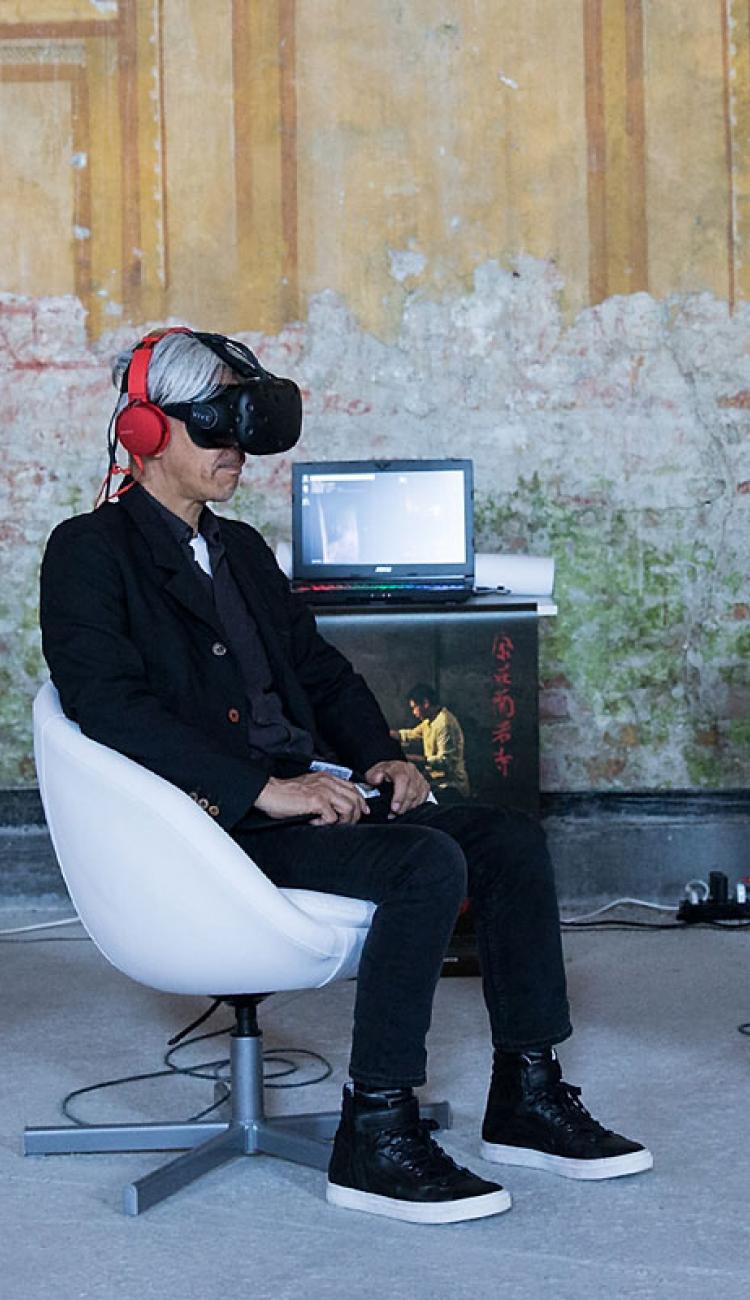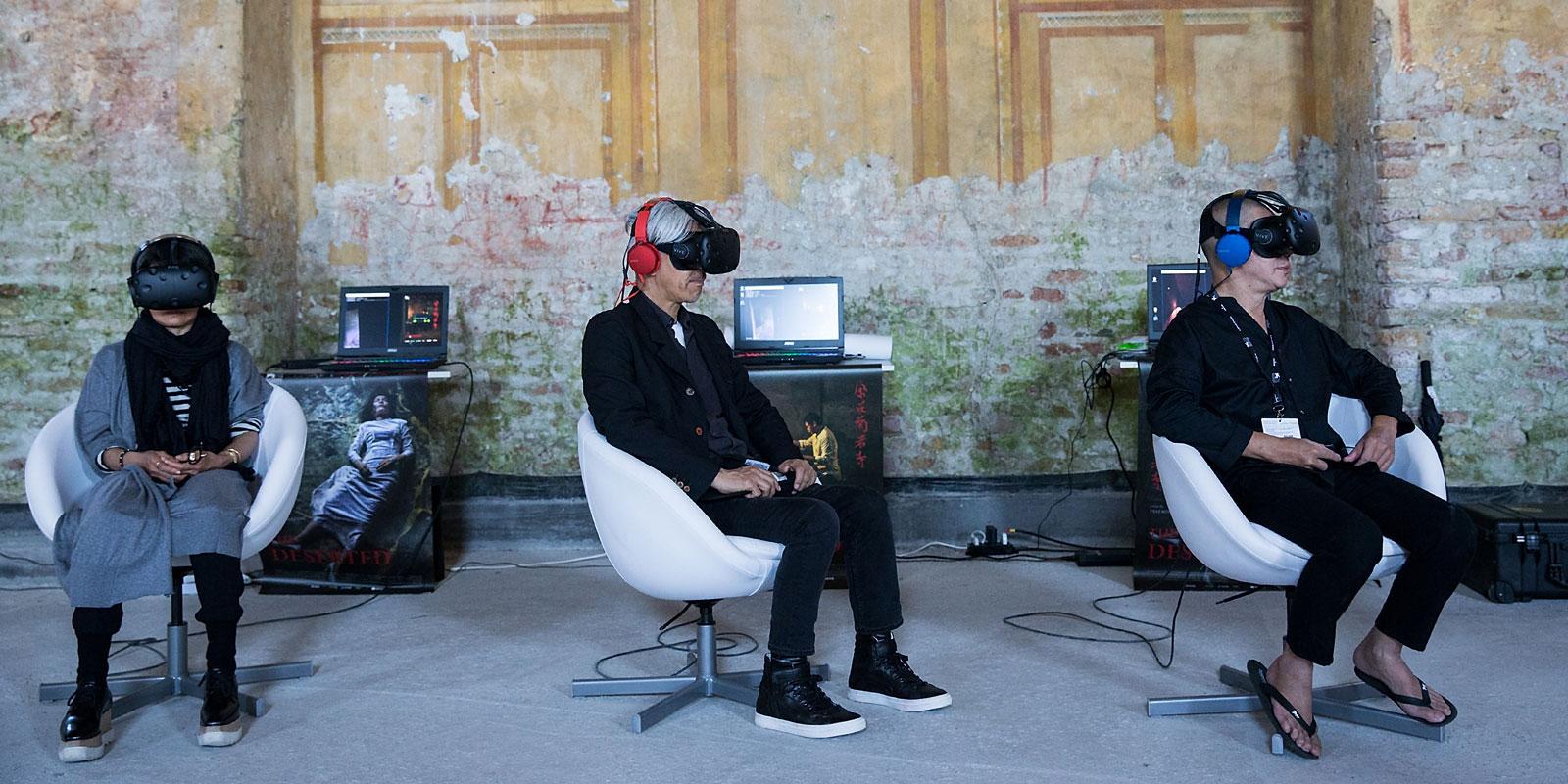Jan 15, 2019
Ted Schilowitz on augmented reality, immersive cinema, and gadgets.
“I'm an explorer,” says Ted Schilowitz, when asked to describe his job as futurist-in-residence at Paramount Pictures. “The way I see it, if you don't have anybody exploring, you're never going to learn anything new.”
Futurists are usually on the payroll of companies whose bottom line depends on anticipating consumer behavior, such as those in retail or consumer technology. But now that technology’s changing the way video is created and consumed, professionals like Schilowitz are carving a new niche in divining the future of entertainment.
Schilowitz was a futurist at Fox before joining Paramount in 2017, a few months after Paramount CEO Jim Gianopulos made the same move. Earlier in his career, he was the first employee and founding team member of RED Digital Cinema, which manufactures digital cameras, and a co-founder of G-Technology, which specializes in advanced external storage.
At Paramount, he investigates and tests relevant new technologies in the industry and finds new ways to enhance moviegoers’ experience with the Paramount content library. For example, an exploratory partnership with Intel Studios led to a 10,000-square-foot studio that can film volumetric video, which creates a more immersive VR experience (more on the technology here). A preview of the volumetric video experience was on display at this year’s Consumer Electronics Show in a 20-second demo of Paramount’s Grease.
Schilowitz spoke with Viacom while in Las Vegas for CES on how next-generation technologies will shape the future of entertainment.
Viacom: What does it mean to be a futurist at a movie studio?
Ted Schilowitz: My job is really interesting, because it's a job that's filled with intrigue, mischief, study, practice, and learning. Basically, my job is to learn new things and connect those with new ways of what entertainment can be in the future. That's the gig. A lot of my research and the things I look at are related to what is broadly referred to as experiential entertainment.
I’m pretty unique in our industry. Google has futurists. IBM has futurists. A number of large retail entities have futurists. A number of universities have futurists. But, for me, I'm the guy that came out of the traditional entertainment world. My first career was mostly in children's television (stage manager, director, producer), and then I owned a television production company for many years in Orlando, Fla. before migrating into the technology world.
" We're making our screens more like our brains, and that's what's really remarkable. "
V: How do you think technology will affect moviegoing in the near future?
TS: So, everything is in service to the story. Without story you have nothing. Without story you just have technology. It's not compelling. But, if you think about a story, that's not just something you watch on a flat screen, it’s something that you actually participate in and are immersed in. That’s an interesting area to explore, as it challenges the status quo of entertainment, which very well may break the boundaries of what we think of when we want to entertain ourselves.
The next really big change that's coming is what we call trackable facial screens. That's what VR and AR allow you to do. The screen knows where you are, knows where you're looking, knows where you are in physical space. It's effectively borderless. We're making our screens more like our brains, and that's what's really remarkable. That's potentially the future of a style of the cinematic experience.
V: For those unfamiliar, can you explain the difference between AR and MR?
TS: Augmented reality is a layer that you put on top of the real world. So, for example, when you watch the football game on TV, and lines, graphics, and the player's stats just kind of live on the field, that's augmented reality. Mixed reality is more like augmented reality on steroids. It's when you're actually blending the real world and the artificial world in a way that eventually your brain won't be able to tell the difference.
V: We’re at CES, where cool new gadgets are always a hot topic. Are there any interesting gadgets in the experiential entertainment space?
TS: We've seen a whole lot more companies show much more evolved mixed reality glasses. Not just a few companies, a whole array of them. They’re all trying different things and some of them are getting really, really good. They're starting to look like the dream, but they're not quite there yet. They’re high-resolution, comfortable, and almost fashionable. A few more technology, human comfort, and functionality turns, and we just might have the next technology device we use all the time.
V: Can you describe the technology behind the immersive experience created to honor the 40th anniversary of Grease?
TS: We can now start to electronically capture things and display them in a way that mirrors reality. We can do that with still objects with a technique called photogrammetry, and we can do that with moving objects like cars of human bodies, which is what’s called volumetric capture, or video photogrammetry. Videogrammetry is a very evolved concept, and it requires new types of display systems and massive computing resources to show you the capabilities of these volumetric pixels that are captured from every angle as they would be in the real world. It’s an ambitious area of pursuit for us and our technology partners like Intel.
V: Interactive technology is transforming entertainment experiences. How do you see entertainment inspiring technology?
TS: Of course, one of the most beloved IP at Paramount is Star Trek, and you can track so many innovations that are real now and directly to Star Trek. The communicator is basically like the Motorola flip cell phone. The tricorder is a modern mobile medical machine that exists today in various forms. There's a direct correlation to things we've actually built that have come out of Star Trek. It's important to pay attention to content that talks about innovation. Very often, story creators lead the way in the types of gear and experiences that will manifest in the “real world.” So, it’s a smart idea to pay attention to what the creators are envisioning, as science fiction has a real chance to become science fact in the near future.

